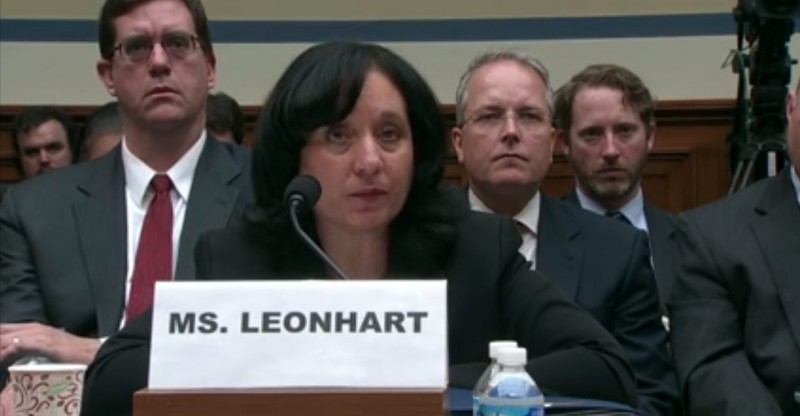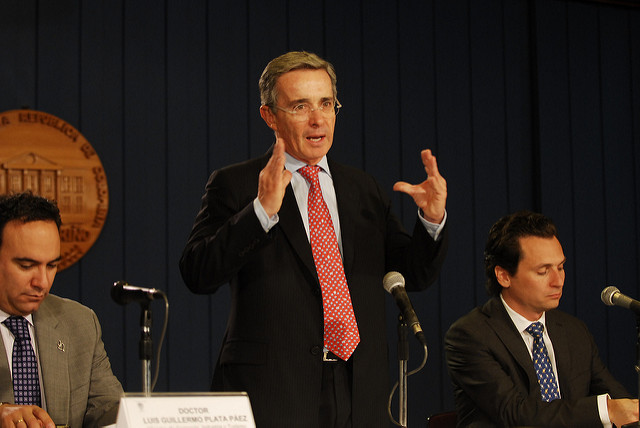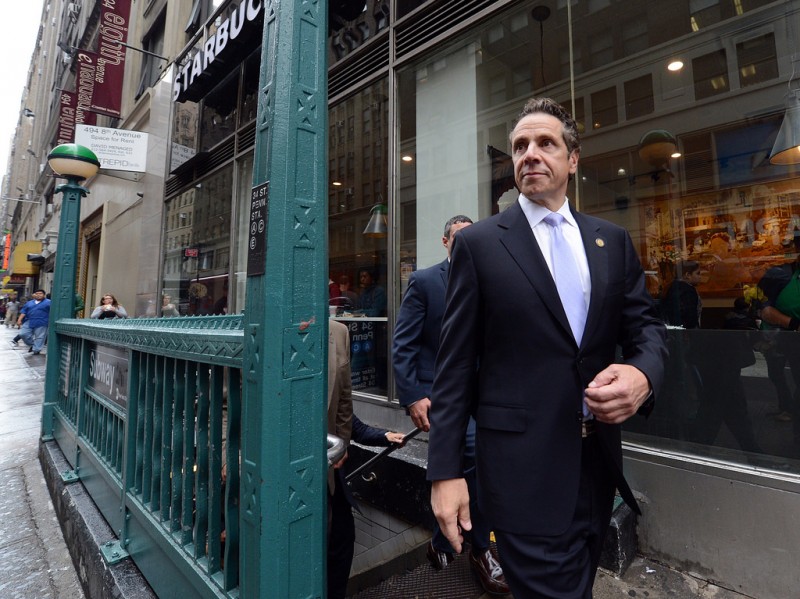
Andes, Colombia, Latin America: Week in Review, North America, United States
U.S. Anti-Drug Chief to Retire After Colombia ‘Sex Party’ Allegations
April 22, 2015 By Staff
Top Story — Michelle Leonhart, the head of the U.S. Drug Enforcement Administration, will soon resign, Attorney General Eric Holder announced Tuesday, as controversy endures over her handling of a scandal involving DEA agents’ conduct in Colombia.
According to an investigation by the Investigator of the Justice Department, the DEA’s parent agency, agents in Colombia attended sex parties with prostitutes paid for by drug traffickers. Those parties, according to the report, were arranged by local police officers, who also provided security for the U.S. agents.
Leonhart was criticized for the agency’s response to the scandal, which some legislators said did not go far enough; some agents who admitted to participating in the sex parties were suspended for as little as two days, Politico reported.
In addition to the scandal over the sex parties, Leonhart has been perceived to resist the administration of President Barack Obama on issues like marijuana legalization and sentencing for drug offenders.
Leonhart will retire in mid-May, Holder said in a statement.
Headlines from the Western Hemisphere
North America
- The Ecologist Green Party in Mexico has taken on a strategy that borders on organized crime, according to The Guardian, and is facing both fines for breaking electoral campaign rules and unprecedented criticism.
- Despite the recent arrests of major drug cartel leaders in Mexico, crime continues, especially in the form of extortion and kidnapping, according to an article in Forbes, which suggests the creation of an effective local police force is the next step.
- The Mexican government announced a ban on egg and live bird imports from Iowa following the outbreak of a bird-flu in the state.
Caribbean
- An executive order banning horse-drawn carriages in San Juan, Puerto Rico, went into effect Monday after years of complaints of animal abuse from tourists and residents, and just days after photos appeared on social media of a collapsed horse in old San Juan.
- The status of dozens of U.S. fugitives currently living in Cuba — including William Morales, a bombmaker that aided in a 1975 bombing that left four dead — remains unclear as the U.S. and Cuba move to normalize diplomatic relations.
- New York Governor Cuomo’s two day trade-mission in Cuba has resulted in two successful deals: New York-based software company Infor has found partners to resell its software in Cuba, and a U.S. cancer research center and Cuba’s Center for Molecular Immunology signed an agreement to develop a lung cancer vaccine.
- An appeal was filed to Haiti’s Supreme Court on Monday after a widely criticized ruling had led to the release and acquittal of Woodly Ethéart, a man close to the family of President Michel Martelly who was charged with murder, drug trafficking and operating a kidnapping ring.
Central America
- A plot to assassinate Honduran President Juan Orlando Hernández last September, planned by gang leaders in the region after the president cracked down on organized crime, was allegedly prevented when police and military officials discovered the plot through intelligence gathering, the Honduran government announced Tuesday.
Andes
- Colombian President Juan Manuel Santos on Tuesday publicly addressed the public criticism that he has faced in the wake of an attack by FARC rebels last Wednesday that left 10 soldiers dead.
- The head of Venezuela’s National Assembly — Diosdado Cabello, reportedly the second most powerful figure within the country’s ruling party after President Nicolás Maduro — has announced his intention to sue a series of print and online publications for reports published in January that claimed he headed a drug ring with political and military ties.
Southern Cone
- On Monday, a tornado caused by a supercell storm ripped through the Brazilian city of Xanxerê, in the southern state Santa Catarina, killing two, injuring 120 and forcing over 1,000 to evacuate their homes.
- Argentine President Cristina Fernández wrote in a column on her official website on Tuesday of a conspiracy between Jewish community groups, U.S. “vulture funds” and late Special Prosecutor Alberto Nisman — whose case against the president was definitively dismissed on Monday — to undermine her diplomatic campaign to strengthen the country’s ties with Iran.
- Protests in southern Chile continue unabated since March over the appointment by Pope Francis of a bishop believed to have shielded the country’s most notorious pedophile from prosecution.
Subscribe to Today in Latin America by Email





